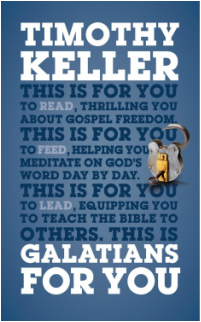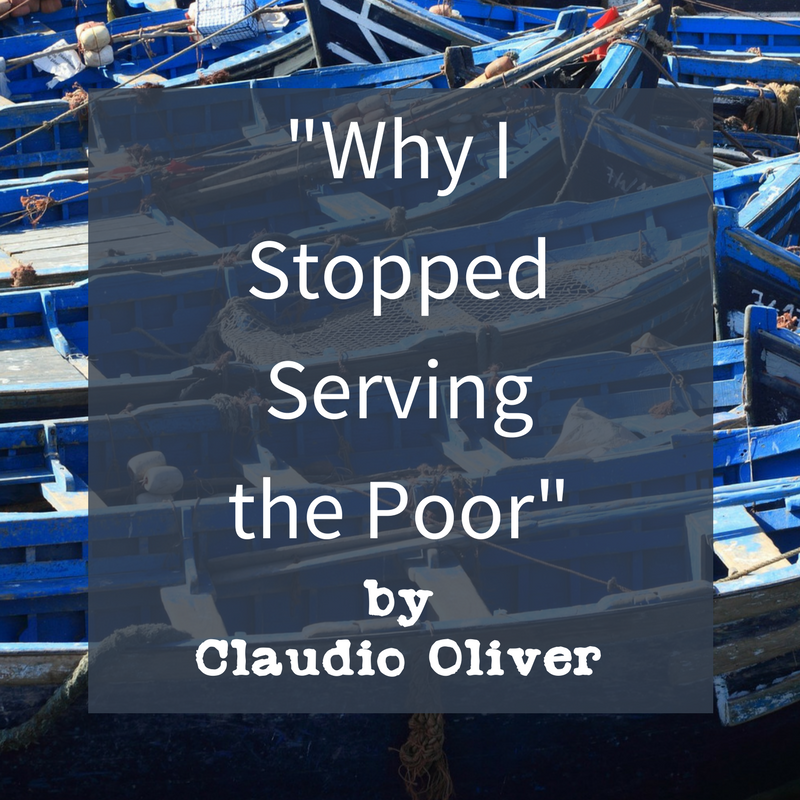|
I wonder where the eye of the storm is. I feel like I've been tossed back and forth, up and down, over and under. And I feel like I may be losing hope this storm is ever going to end. At the beginning of May, my husband was fired from his job. We had already downsized to being a one-salary family, and I was three months from giving birth to our second child. We're now nearing the end of September, and he has yet to land a new job. All of the frustrating events leading up to him getting fired brought some serious turbulence into our lives. Every day he'd come home with more drama from working in an environment where honesty was not wanted by his authority, provoking his coworkers to resort to gossip. It seemed he was often talking someone off the quitting ledge. Then he was fired. All in all, we felt it was a good thing. The emotionalism this job created seemed to permeate not just his job relationships but also our interactions as a family. We were ready for a change, and we thought better times were just around the corner.
Our budget was super tight before he was let go and it got tighter right away after his last check was cashed. It felt too tight, and not long after paying for our groceries on a credit card one day, I decided I would sign us up for food stamps. I'm so grateful for the government assistance that has been a huge load off our shoulders during this time. It turns out the government thinks we should get more a week than we had previously been budgeting for groceries. This has been an enormous blessing. But there has been no money going into our car insurance fund, our eating out fund, our giving fund, etc. Every dollar he makes from a side job goes to paying our bills. It's been more than a miracle that our mortgage has been paid these four months. Two of those monthly miracles came from some very generous family members. Still, I find myself wondering how God is going to provide for this month's $810 mortgage payment. It's September 20 and we have $200 toward that bill. We have ten days to scrounge up 600 buckeroos. It seems impossible and yet experience from the past five months says he'll find a way. He'll create another miracle. Right now, in this moment, I have strong faith that miracles can happen. I have no problem believing that these clouds above my head will bring the necessary rain. But that's where my faith stops; though his power does not. He can make streams in the desert and rivers in the wasteland, but can I believe that he will provide enough sustenance beyond survival? I see the raindrops. I believe in them. But I don't see the stream. I don't see how the few clouds in this dry desert could possibly make enough rain to create a river. I feel overwhelmed not because our mortgage is due in ten days. I feel overwhelmed because there's a fine line between faith and stupidity, and if things aren't going to change in the economic scene of our lives, then I'm dumb for not living even more frugally. But, then again, am I being spiritually stupid by not believing streams are possible in this arid land? Today I heard another story of how a fellow Christian's obedience toward tithing got her to a much better economic standing. My first, unfiltered-by-the-gospel reaction to those stories is jealousy. That's not my story, and never has been despite my tithing record. Then I think of the older brother in the prodigal son parable and realize I'm being just like him, and that's dumb. And then I think of Job. I wonder how many times on his journey he thought, okay breakthrough is just around the corner. I want to buy my two-month-old some new clothes because the seasons are changing and she doesn't have many long-sleeve onesies that fit. I want to buy myself some new clothes, especially because my post-pregnant self still needs to drop ten pounds if I'm going to fit into pre-pregnant pants. I want my son to continue attending preschool. I want to not feel guilty about every dollar I spend on something other than a bill. I want to fix up my house. A lot. Will this storm end? More importantly, will I have faith it'll create more than mere raindrops. Will I have faith that God really can create rivers in the wasteland and streams in the desert?
0 Comments
 Self-salvation is contrary to the gospel. But it's a strong arm I unconsciously wrestle with regularly. "Paul has already said that the preaching of the gospel is terribly offensive to the human heart. People find it insulting to be told that they are too weak and sinful to do anything to contribute to their salvation." I just finished a study through Galatians. And Tim Keller's words here hit me hard. I think this might be the essence of my personal difficulty with this stage of life. Productivity is something I ardently desire in life. I have to remind my accomplishment-driven self that my good works do not bring my salvation, and often more importantly for me, are not something I can boast in if I take the gospel seriously. But I like to boast in my good works. I like to boast in my accomplishments. I like to boast in my productivity. Even if the audience I'm boasting to is merely myself. When I am frustrated with someone else and they are frustrated with me, my immediate thought is, "Well I did this and that and this and that. At least I've done those things." For example, when my husband and I are in the midst of a tiff usually it's based out of the fact that he shows love and receives love differently than I do. When I feel unloved, I automatically assume I've given lots of love because of all the things I've done around the house and with the kids. So when the fighting flag is raised, my ammo is to lean on productivity. I've done the dishes, I've done the laundry, I've cooked supper, I've wiped up poopy butts, I've given baths, I've brushed teeth. What have you done? What things have you productively done for me? And even in parenting it's a lack of measurable productivity that gets under my skin the most. I can't quantify the outcomes of this "task" of life. [Yes, I know parenting should not be a viewed as a task but rather a role, but I'm being honest here. I all too often have the wrong perspective.] I desire to be productive in my parenting. How many books did I read Cade today? How much time did he spend outside? Did he brush his teeth? Eat healthy food? Express himself athletically, artistically, intellectually? When I can check these things off well in a day's time, I can pat myself on the back for a job well done. His success is because of me. But on the days I cannot check these things off. On the days Juniper is crying every time I put her down which means Cade is watching way more TV than I want him to ... . On the days that I'm running a million errands so no books get read ... . On the days I've started too many house projects and finished none because of messes and demands and not enough alone time ... . Then what? That's when my productivity meter is starving and I get really down. But this is the point of the gospel: It's not about what you do, it's all about who you are. The gospel says you can't build a bridge to paradise, but if you accept your identity in Christ, you get to walk the bridge he's already built. In parenting, it's not so much about what I do, but about who I am. I can spend a day reading Cade 20 books and still be a bad mom if I have a horrible attitude. And Cade can spend a day watching four hours of TV and I can still be a good mom because I have a great attitude about a crying baby that won't let me accomplish much. The gospel says productivity is not at the core of who we are. Which means, I shouldn't lust after it, I shouldn't lean on it for my identity, I shouldn't let it be my idol. It is simply a tool in the hands of a human being. It's often so much more about the how than the what. "There are two kinds of people in the world"—is the saying that comes to mind when people say things like "Well they do this and we'd never do that." In light of recent events in our nation, there's a lot of this categorizing going on. The "they" are blacks being targeted by white cops or white cops or immigrants, especially undocumented Latinos. The world has been collectively reduced to two categories of people—blacks and whites, documented and undocumented, immigrants or descendants of immigrants. It's unfortunate to hear, but what really gets under my skin is Christians who speak this way. Galatians 3:28 is clear—there's no room for xenophobia in the church. Can I get a witness? I'm serious. I don't place large amounts of value or human dignity on what political side you lean towards or fall on. Nor on the color of your skin. Nor on your ethnic background. Nor if you are man or woman. Nor if you are a Christian or not. If you are human, you have value. It is the gospel that compels me to think in this way, not some great amazing quality that I dug up deep within my own soul from my own strength. Paul tells the Galatians it's not about their culture (Jew or Greek) nor about their economic standing (slave or free) nor about their sex (male or female) but that we "are all one in Christ Jesus." What does this mean? It means that a Christian from Mexico, another from Guatemala, and another whose ancestors are from the continent of Africa, can, will, and should find unity first in their identity as Christ followers. You can cheer for Donald Trump, and I'll still assign value to your life because of the gospel. You can vote for him if you so desire, but recognize that he makes blanket statements that you would not like if they were made about you and one of your identifying factors. When you see the world as us and them, it's easy to think there's a plank in their eyes, and only a speck in ours. But the gospel tells us the opposite. Tim Keller says that the difference between Christians and religious people is the Christian always thinks there's a plank in his own eye and a speck in everyone else's. The religious person thinks the opposite. I think Trump categorizes people too quickly and doesn't seem to recognize the deep and beautiful complexity of people of different races, different economic standing, and different walks of life. (Also, if your argument is the immigrants are taking all the jobs, please read this counter argument from the Niskanen Center.) There is an amazing potential for the churches of our melting-pot country to tap into. That potential is to embody Galatians 3 in a way that makes the world desire what we have. The rich & powerful centurion, the Samaritan, the poor widow, the prostitute—they all have a place in God's kingdom. It is no different today: the white cop, the protester who desires police reform, the undocumented Mexican and the documented Italian—they all have a place in God's kingdom on earth. They all [should] belong to the American church, and they are part of what makes the American church so diversely beautiful.
Step 1 — Be assured in your mind that you could NEVER become a false teacher.
So I'm reading through Galatians and Tim Keller's Galatians For You. Though I've read the Bible a lot throughout my life, I'm not sure I could have ever told someone who had never read Galatians what it was about. I would have simply described it as a letter from Paul to the church in Galatia. BUT holy Toledo, Galatians is currently kicking my butt and making me realize I had ascribed to some false doctrines about salvation. While I would gladly tell you that salvation is NOT about works, I still have a tendency to intertwine the two, especially in my judgements of others. Here's the thing about false teachers: I'm not fully convinced all of them know they are false teachers. It's easy for us to point to others and tack on that label without ever thinking that we ourselves are capable of being "those" people. The truth is, if not all false teachers know they are false teachers, we are in a lot more danger of becoming one than we think we are. The gospel has a funny way of telling us to stop pointing at others and start looking at ourselves. It's a mirror that shows us our own blemishes while simultaneously reminding us that God the Father sees a photo-shopped version of ourselves—blemish-free because of Jesus. Step 2 — Reword the gospel; believe in self-salvation. The church in Galatia had started to believe the lie that works are a part of salvation. "If you add anything to Christ as a requirement for acceptance with God ... you make [the gospel] null and void," says Keller. "People think that we are saved by a strong belief and trust in and love for God, along with a life committed to Him." When we tie good deeds, or a life of church commitment, to our salvation, we nullify the gospel. When we share that wrong perception of the gospel, we become false teachers preaching a false gospel. Step 3 — Become enslaved, or rather, pretend that nothing enslaves you. 2 Peter 2 talks all about false teachers. Peter says that these teachers are slaves. It's easy to point to the slavery of teachers and preachers when they are enslaved by external sins: adultery, debauchery, greed, etc. But what about when they, or should I say we, are enslaved by internal sins? Starting in Galatians 4:8, Paul discusses the slavery of biblical legalism. "The false teachers were not encouraging the Gentile Christians to ignore God's law, as they had in their pagan days. Rather, they were urging them to adopt all the Old Testament Mosaic law, in order to be justified and pleasing to God," says Keller. A false teacher is anyone who preaches a lie—and preaching happens with our lives, over coffee with a friend, in small group, writing a blog that others read, speaking one's mind. Anytime there's an audience, there's a preacher. It's easy for us to point out the irreligious preachers and tell ourselves they are false. But the religious ones are harder to pinpoint. "If anything, the idolatry and slavery of religion is more dangerous than the idolatry and slavery of irreligion, because it is less obvious. The irreligious person knows he is far away from God, but the religious person does not." Keller points to the story of the prodigal son in Luke 15. Both sons are far away from their father, one physically the other emotionally. Physical distance is easier to measure. Emotional distance can seem invisible. Both sons struggle with idols in their lives. The father tries to reconcile both relationships, but only one son parties with his father. Step 4 — Convince yourself renewal rolls over. Romans 12:2 tells us that we can only be transformed by renewing our minds. This is something that must happen regularly. If we assume that our renewal moment from last week, last month, or last year is still valid today, our revelation of the gospel becomes stale. The Word is living — which means like all living things it grows. The spiritual lesson we learned five years ago might be the same one we are learning again now, but we cannot assume we've been there, done that with the gospel. We build on what we have learned in the past, but we cannot stop building. What we've read in the past will come alive afresh with new stages of life and new circumstances that surround us. It's not a linear race that has a finish line after we read all 66 books of the Bible. The race is more like the path a slinky forms in that the lessons learned are cyclical, yet ever-increasing as the Word is revealed more and more in us and in our circumstances. |
Gena's
|

 RSS Feed
RSS Feed

